 |
 |
 |
 |
It's almost too easy to make anything from Supernatural gay.
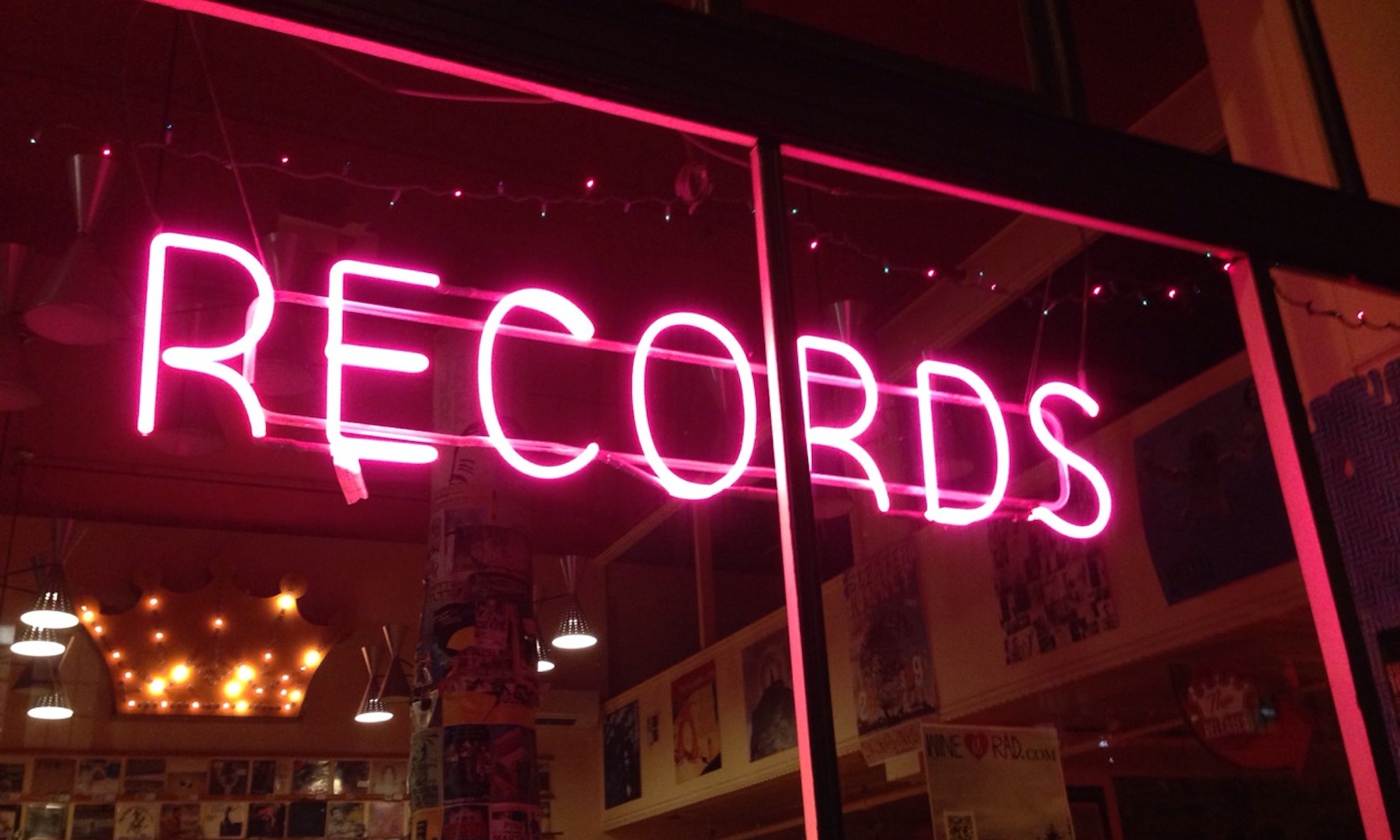
Once a legitimate blog. Now just a collection of memes 'n menz.
 |
 |
 |
 |
It's almost too easy to make anything from Supernatural gay.
Season 2 was such a mess, and now that Orlando Jones is gone from the series I don't know how it can possibly match the awesomeness of Season 1.
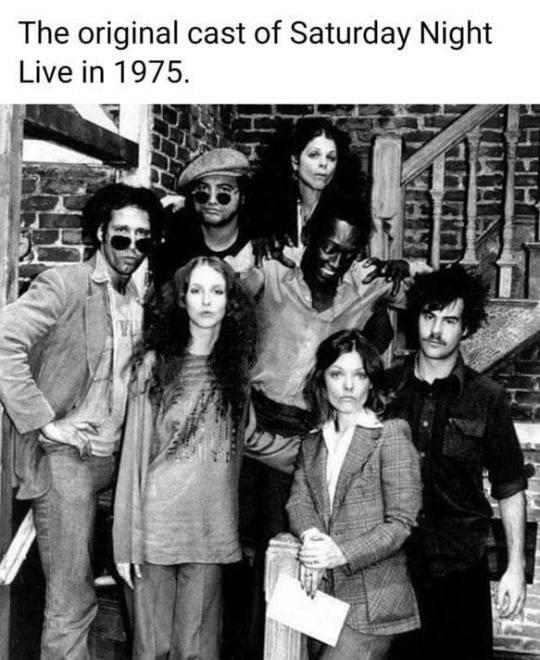
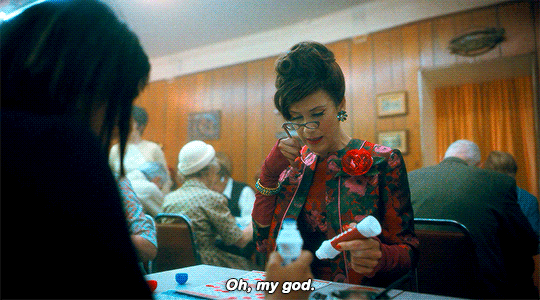
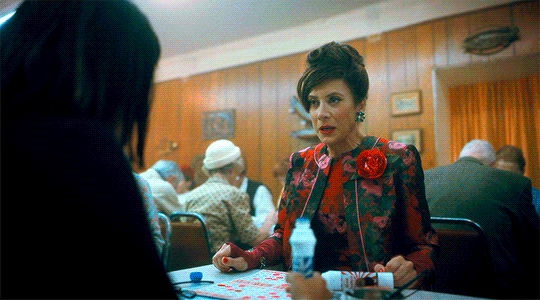
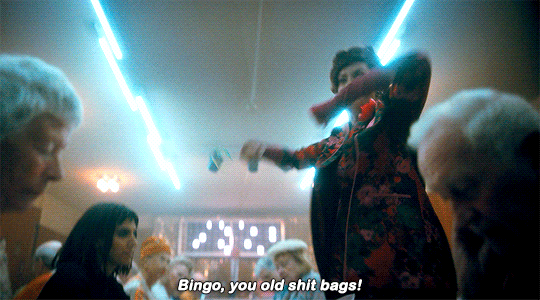
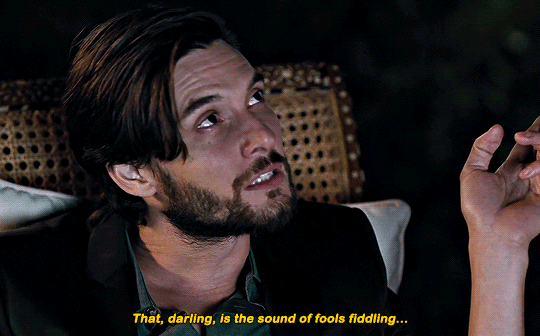
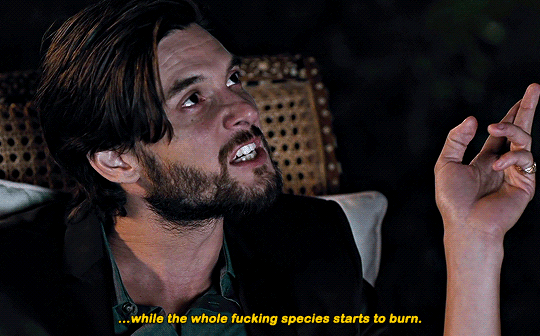
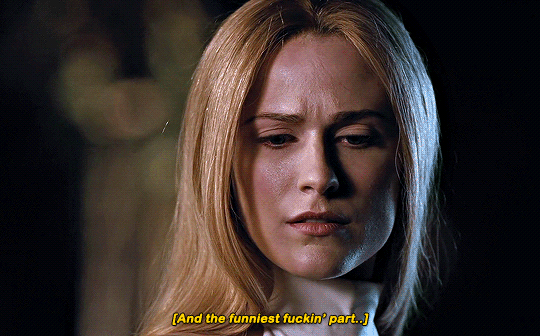
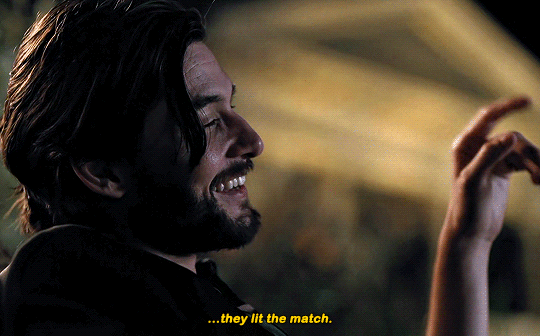
"So here's to you, assholes. May your forever be blissfully short."
WESTWORLD, 2018
I have issues.
Just sayin'.
Probably the best read scene of the entire series.
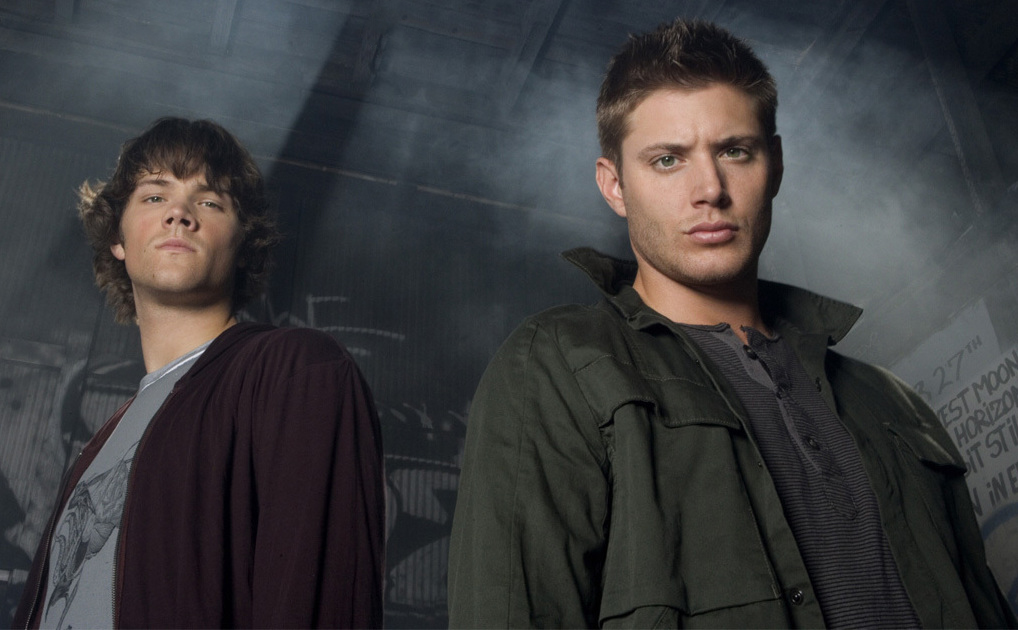
That's what Ben and I are starting to call it as we continue to slog our way through the fifteen (sixteen? seven hundred?) seasons of Supernatural. We just started season six, and I've got only one thing to ask:
How does anyone find the will to go on from one episode to the next without putting a boot through their television or a bullet in their head?
So much shark jumping.
So many plot holes you can drive a fleet of trucks through.
So many still-unresolved Daddy Issues. Seriously guys…see a shrink for chrissake!
And while you're there you might want to discuss the whole "wincest" vibe that's going on between you in almost every episode. I just want to yell, "Would you two just FUCK and get it over with already?! Jesus!"
Or is all this supposed to be part of the show's charm?
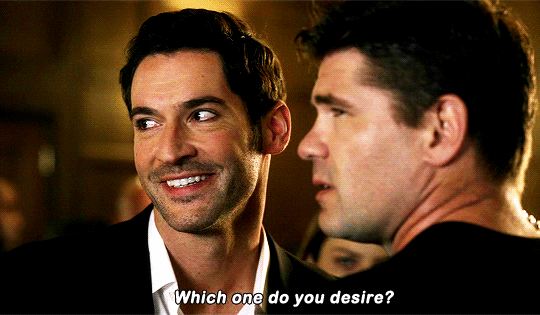
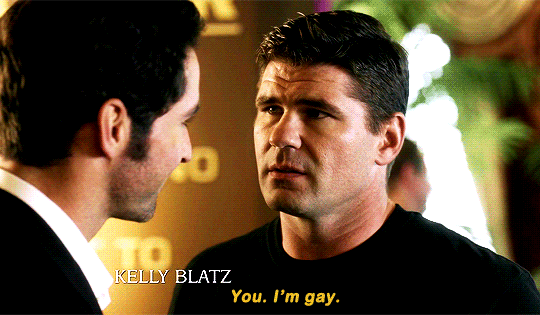
No, Stubbs in a tub. My life is complete.
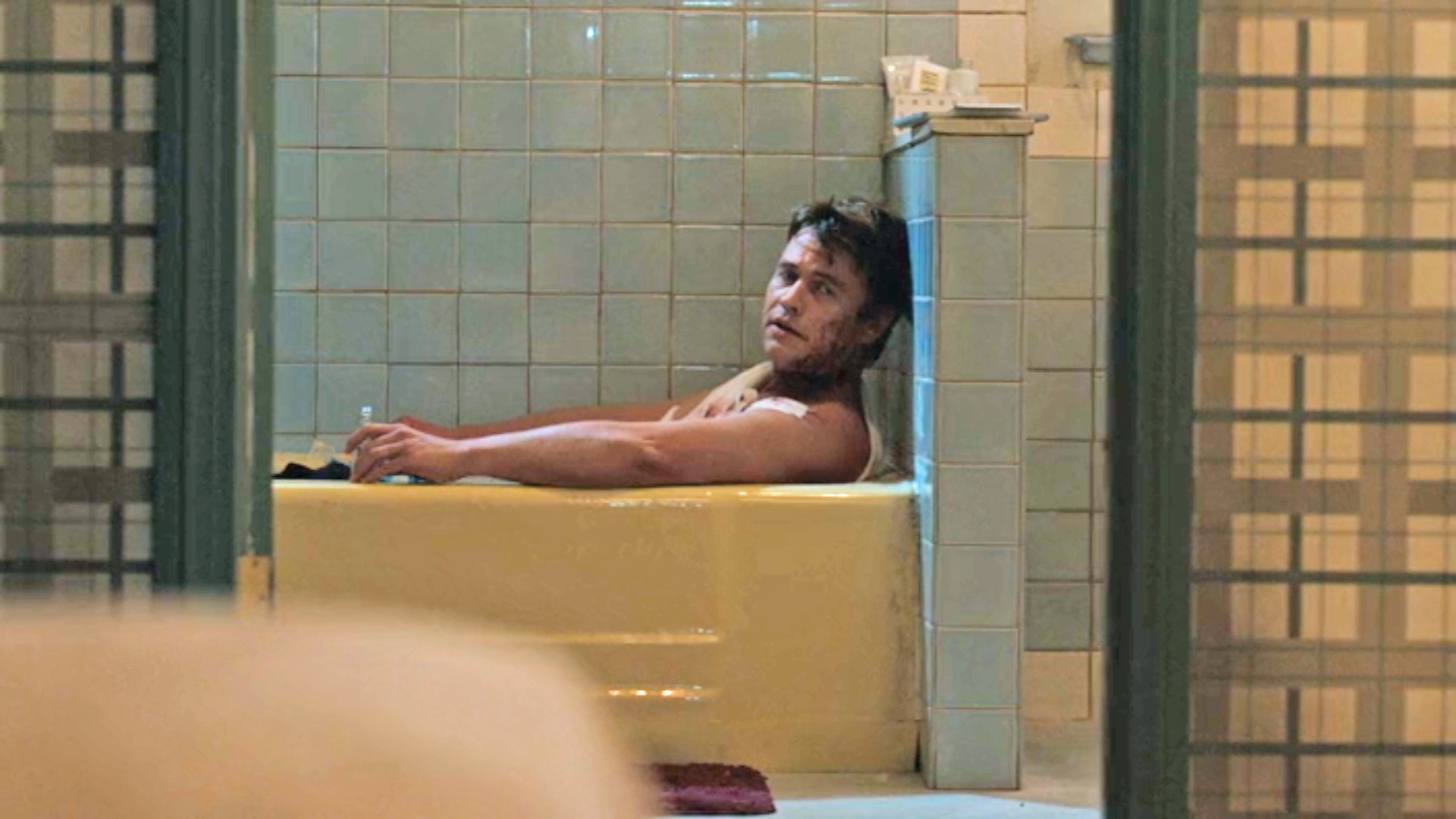
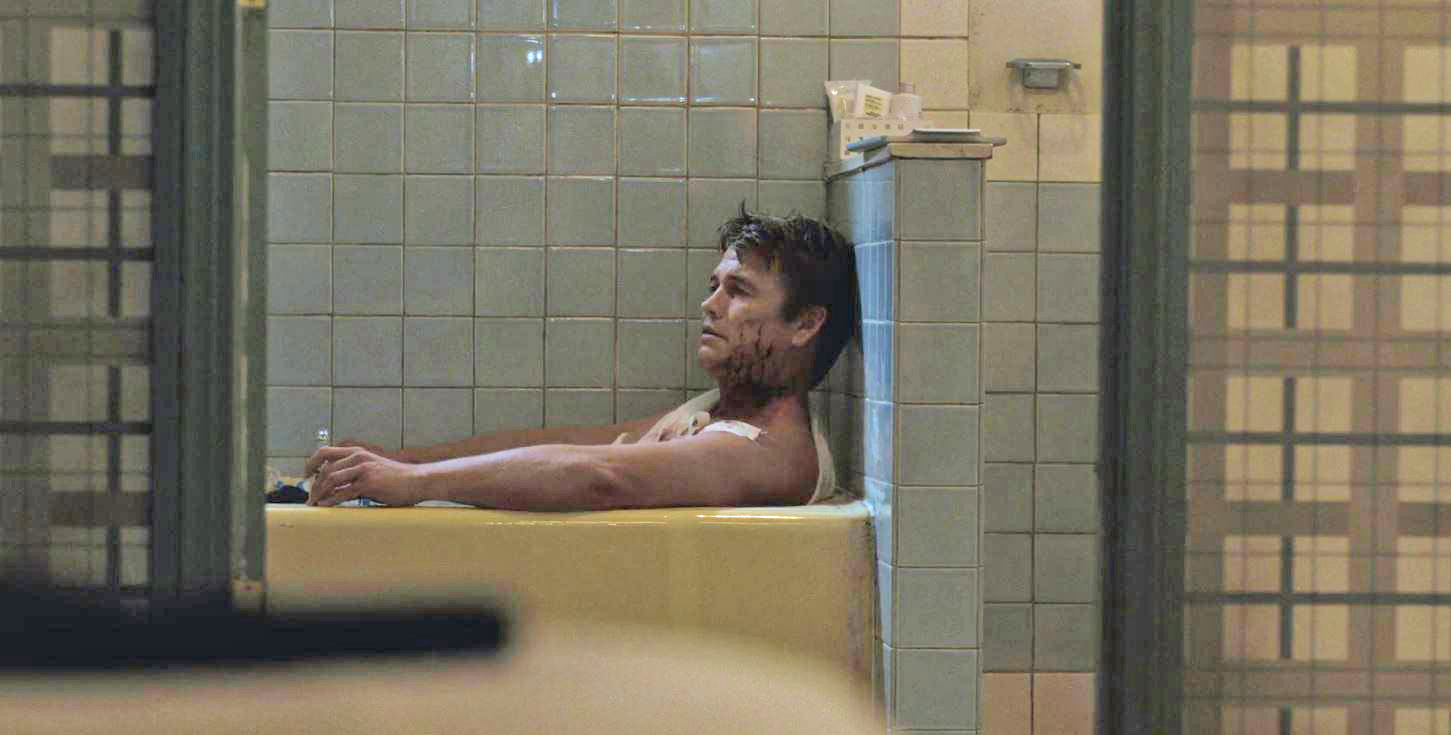
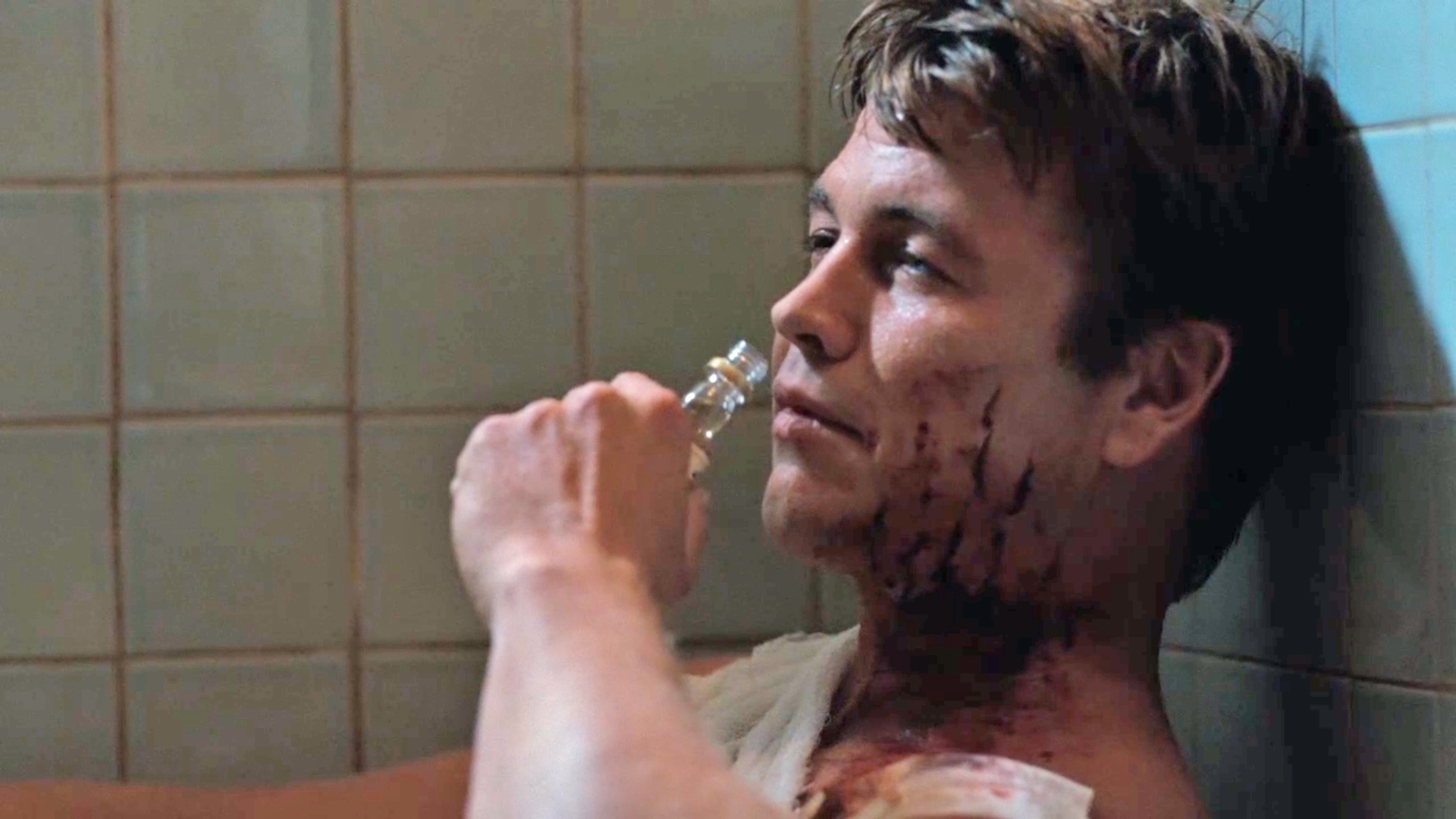
I will be writing more about Season 3 of Westworld later. I'm still processing.
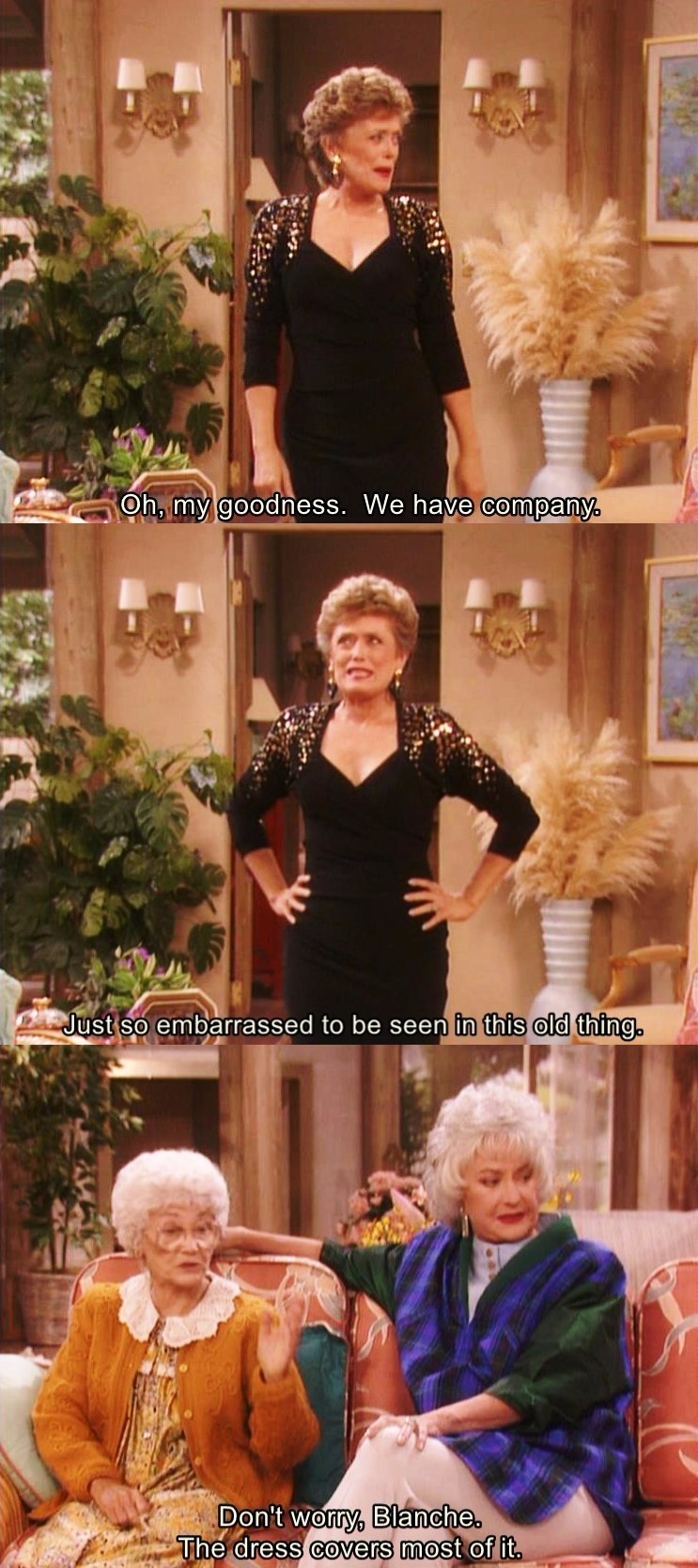
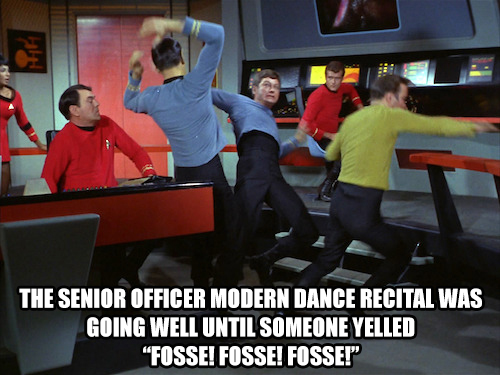
Truth be told, this actually brought a tear to my eye.
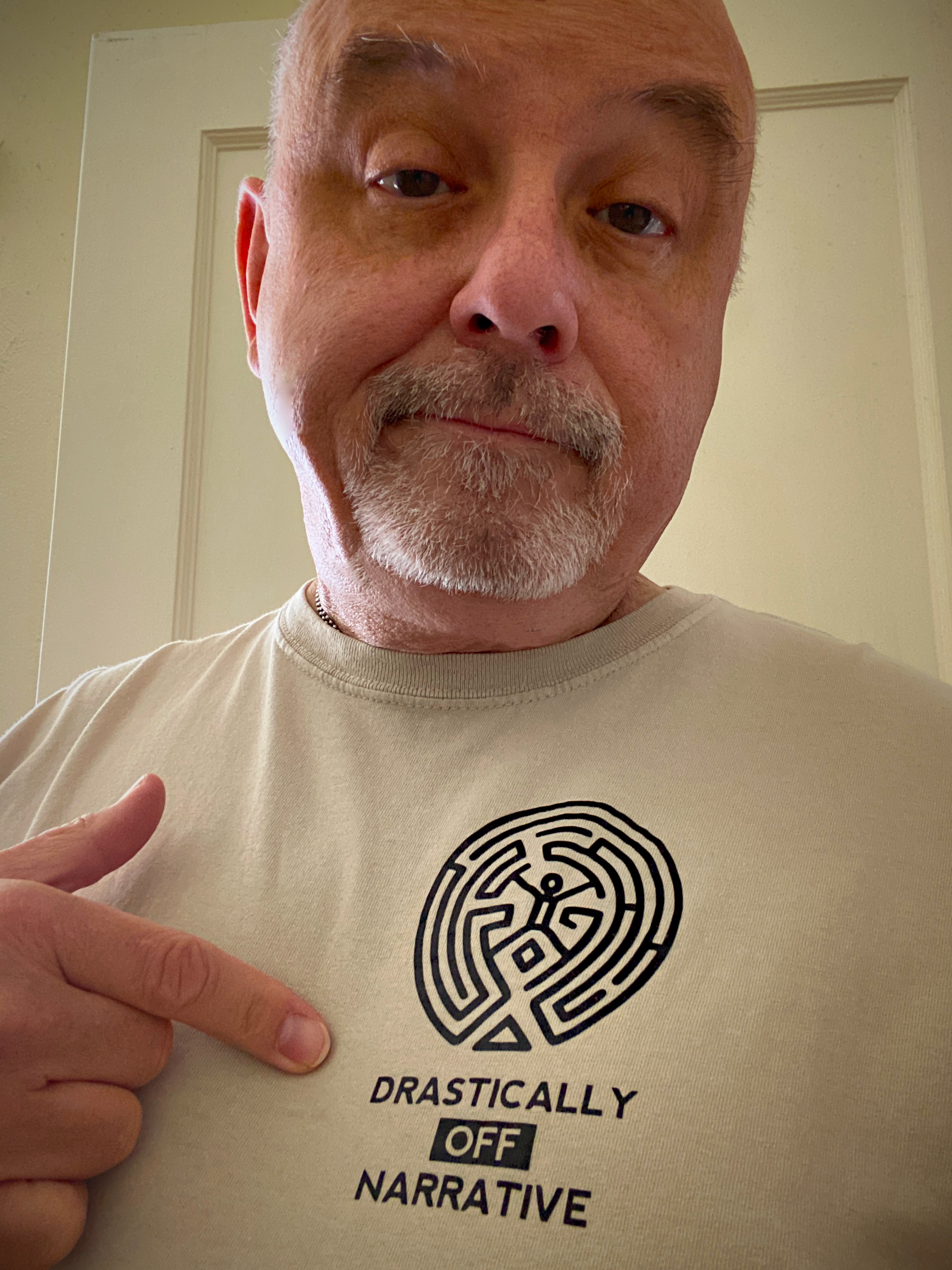
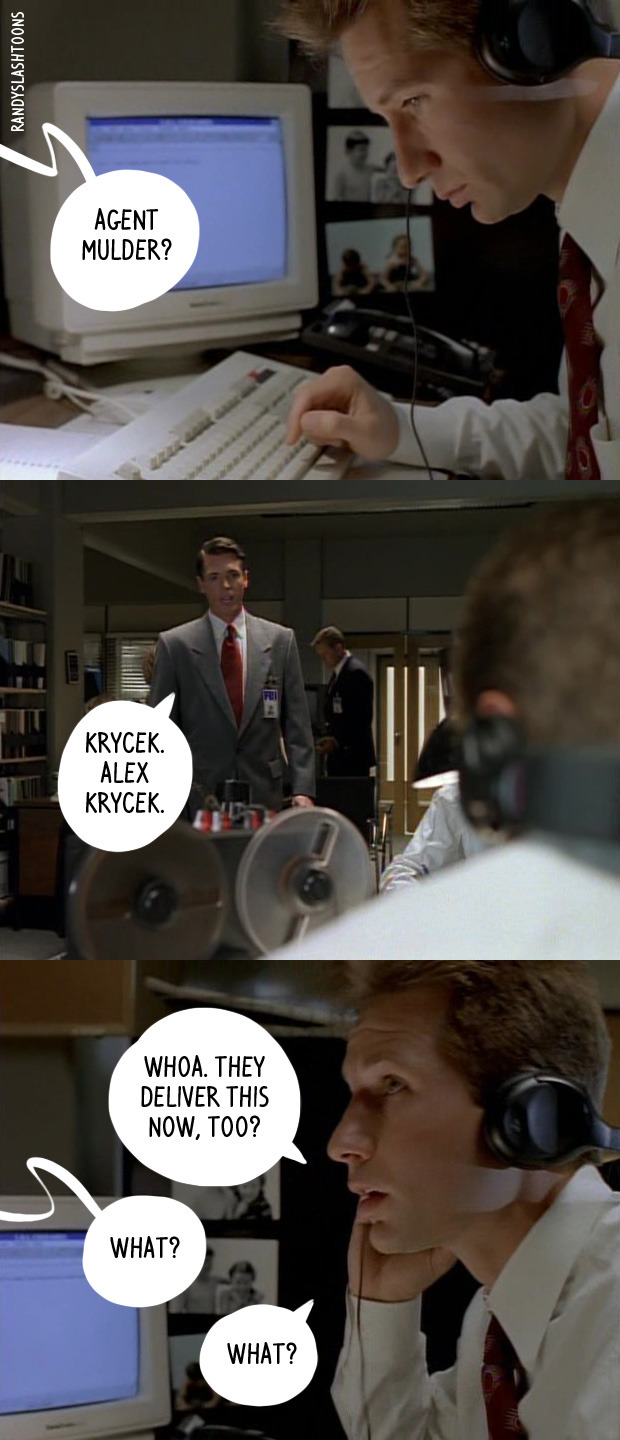
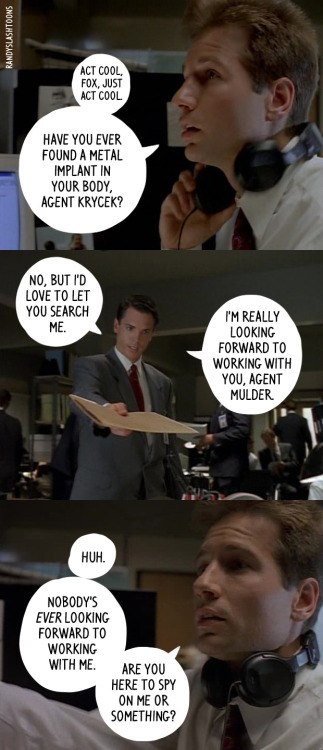
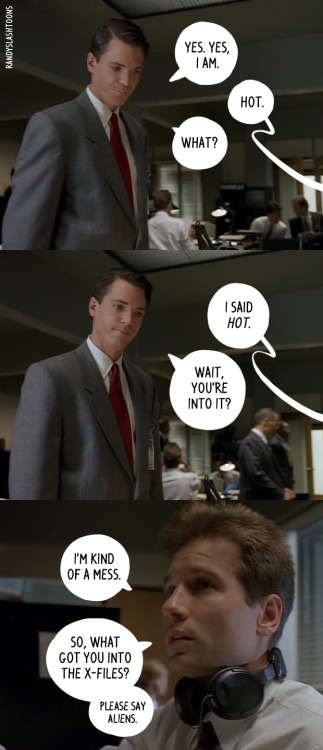
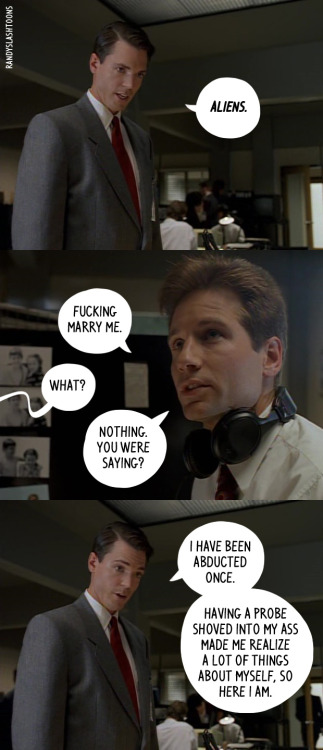
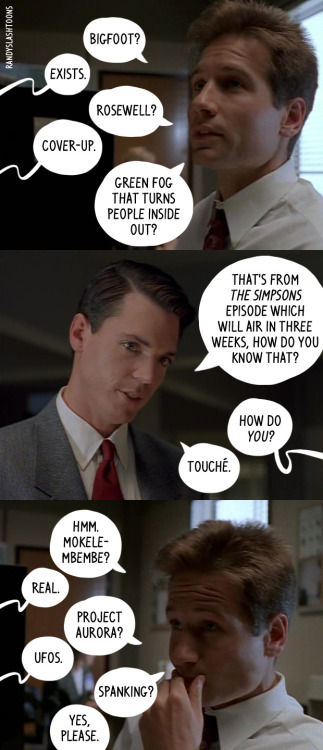
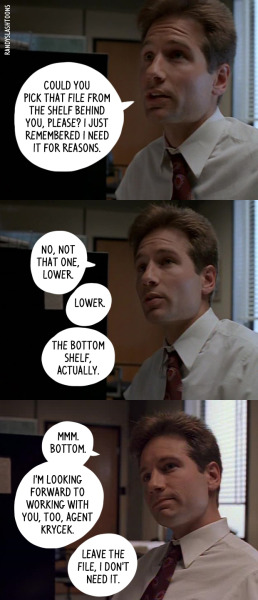
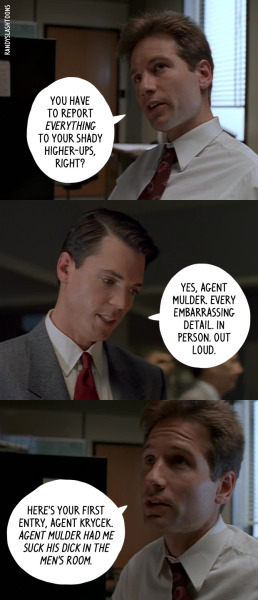
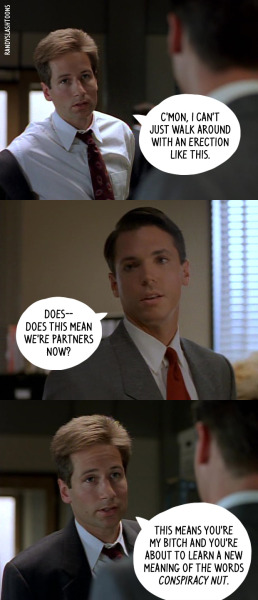
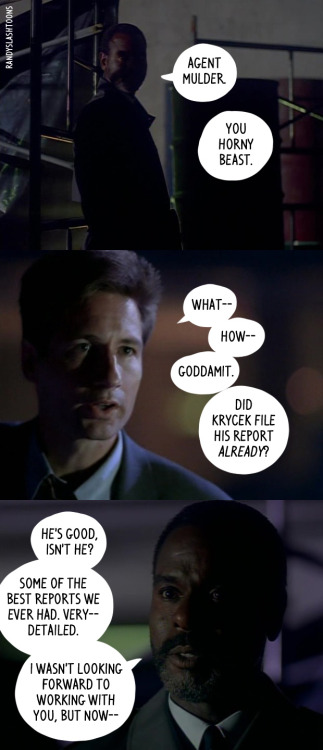
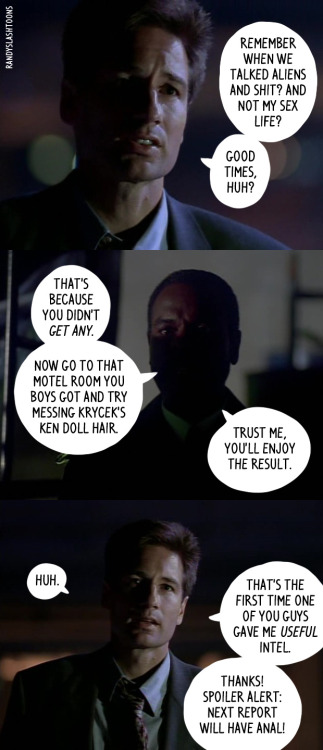
Once again I'm late to the party.
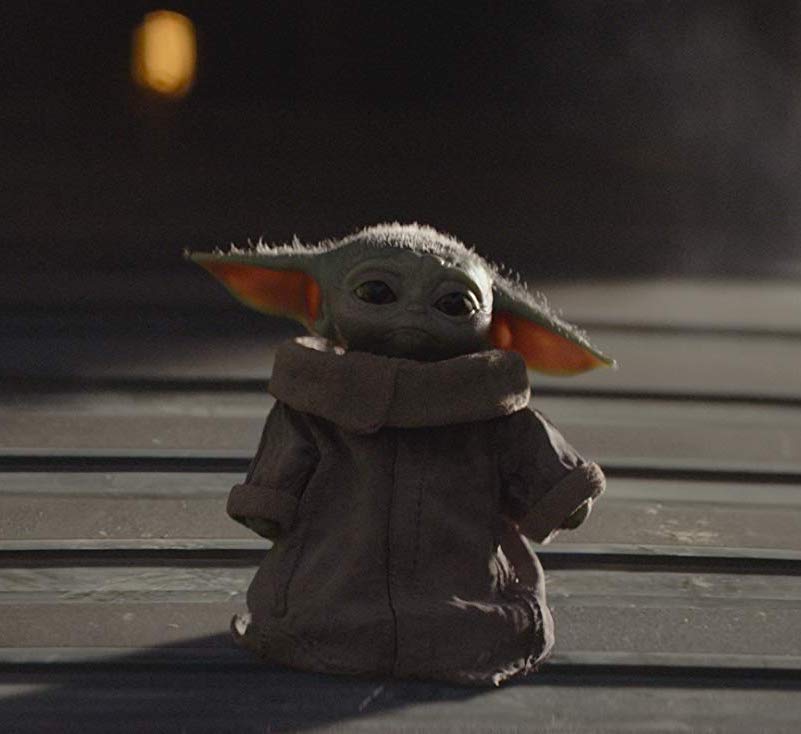
Being the STAR WARS fan that I am, it wasn't like I didn't want to see The Mandalorian. I did. But much like my situation with Star Trek: Discovery, I didn't want to see it enough to pay for a monthly subscription. But Verizon once again came through, and with a free one-year subscription, it's giving me the opportunity to catch up.
I'm only five episodes in, but it's ticking all the boxes and OH. MY. GOD. This is what the last six Star Wars movies should have been. Now I understand why people have been raving about it.
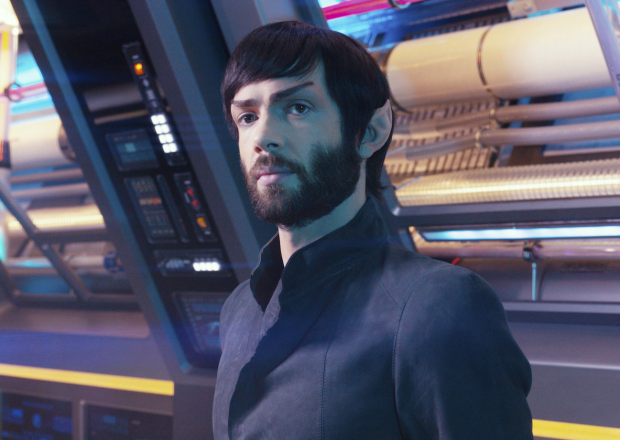
I remember when I first heard that CBS was bringing out a new Star Trek series a few years ago. Immediately my heart sank because it was going to be subscription only. "Fuck that," I thought. I like Trek, but not that much.
I've been a fan of the franchise since the late 60s when it first appeared on our small, 19-inch television at home. It was one of the few shows my dad would let me stay up past my bedtime to watch. My level of fandom precludes me from calling myself a trekkie or even a trekker, but that doesn't mean I'm not engaged with that universe. I'm enough of a fan that I've seen all the episodes of all the series (with the exception of Deep Space Nine and Voyager, both of which lost me about halfway into their runs) often enough that I can turn one on and within seconds say, "Oh, it's that one." But I've never been to a Con, met any of the actors, or have I ever owned any memorabilia beyond a couple plastic model kits of the Enterprise (the ones with the lights that never worked) and a couple other trek-related gifts given to me over the years.
I enjoyed the J.J. Abrams reboots as well as the oft-maligned Star Trek: Enterprise, a Trek some 35 years after the original, that my dad and I still enjoyed watching together.
A combination of things ultimately led me to buy a subscription to CBS All Access. Firstly, Ben and I cut the cable cord and took up streaming various services a couple months ago in an effort to cut expenses. Secondly, this all happened around the same time CBS announced Picard, and that was one I definitely wanted to see, what with The Next Generation being my favorite series of the franchise. Since we had to get All Access in order to see Picard, we bit the bullet and subscribed.
Shortly thereafter we started Star Trek: Discovery, and I have to say that in spite of a rather slow start, I've grown to love it. I appreciate how they pay homage to the original series, but have put a new coat of paint on the tech and the stories themselves, and (despite the lens flare it inherited from Mr. Abrams) I think It's beautiful. I know some fans loathe it, and my personal beef at this point (which may be explained at some point) is that if they have all this tech (mycelial drive, 3d holographic projectors, touch displays, and a plethora of other goodies supposedly in place and well integrated into life years before the events of the original series, what happened? Where did It all go? On the other hand, I can just sit down and enjoy it for the eye candy it is and imagine Kirk and crew utilizing the same tech.
I wish the creators of Star Trek would decide where in the fuck to put Starfleet Headquarters. I mean seriously. That place has moved more than I have over the last 40 years. In Star Trek The Motion Picture it looks like it's somewhere near the Palace of Fine Arts:
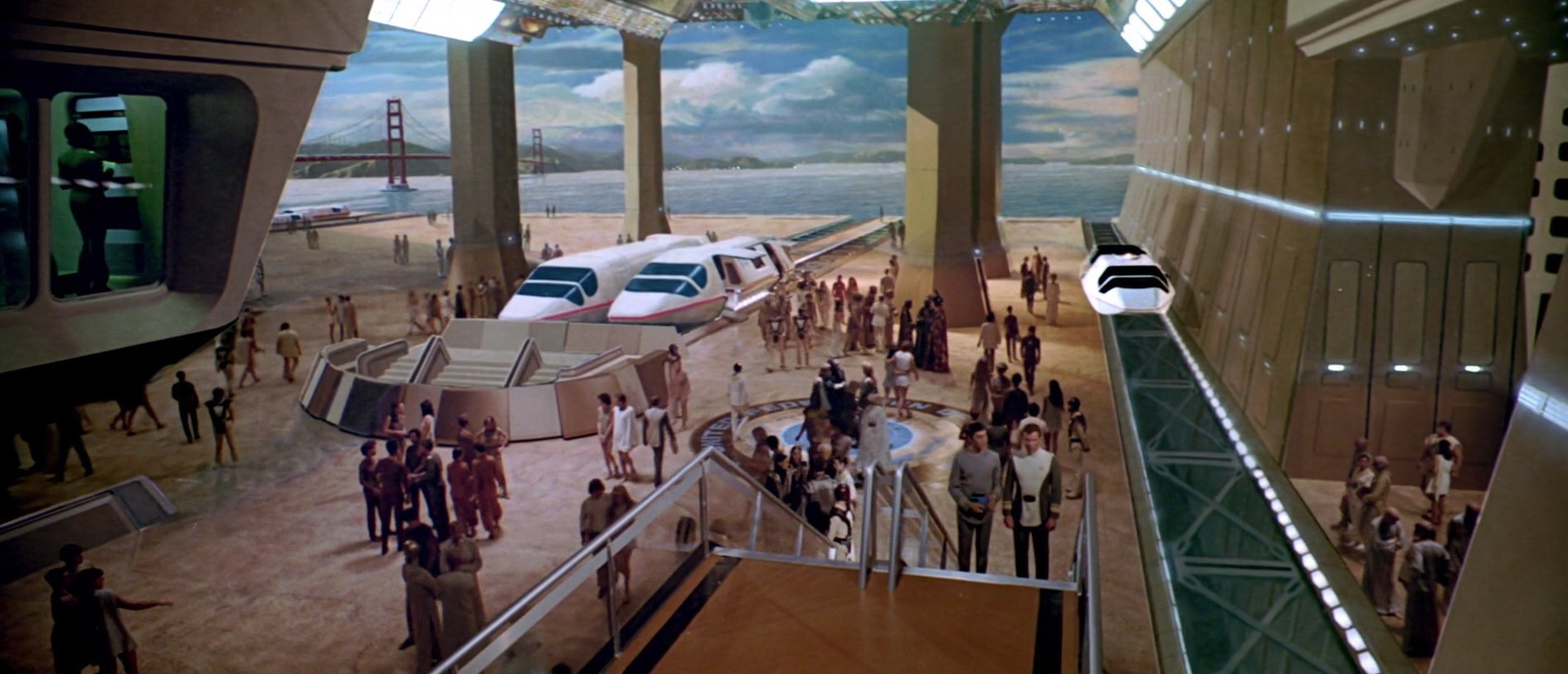
Then it magically moves to the Presidio:
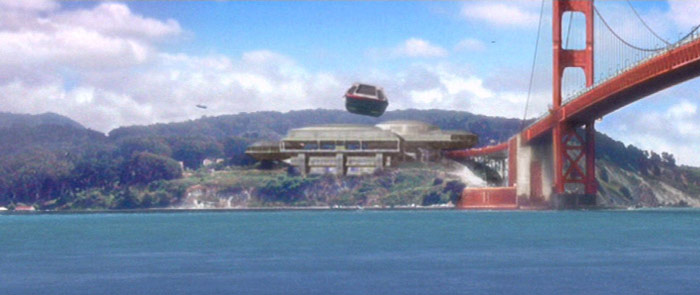
Then, in the Marin Headlands?
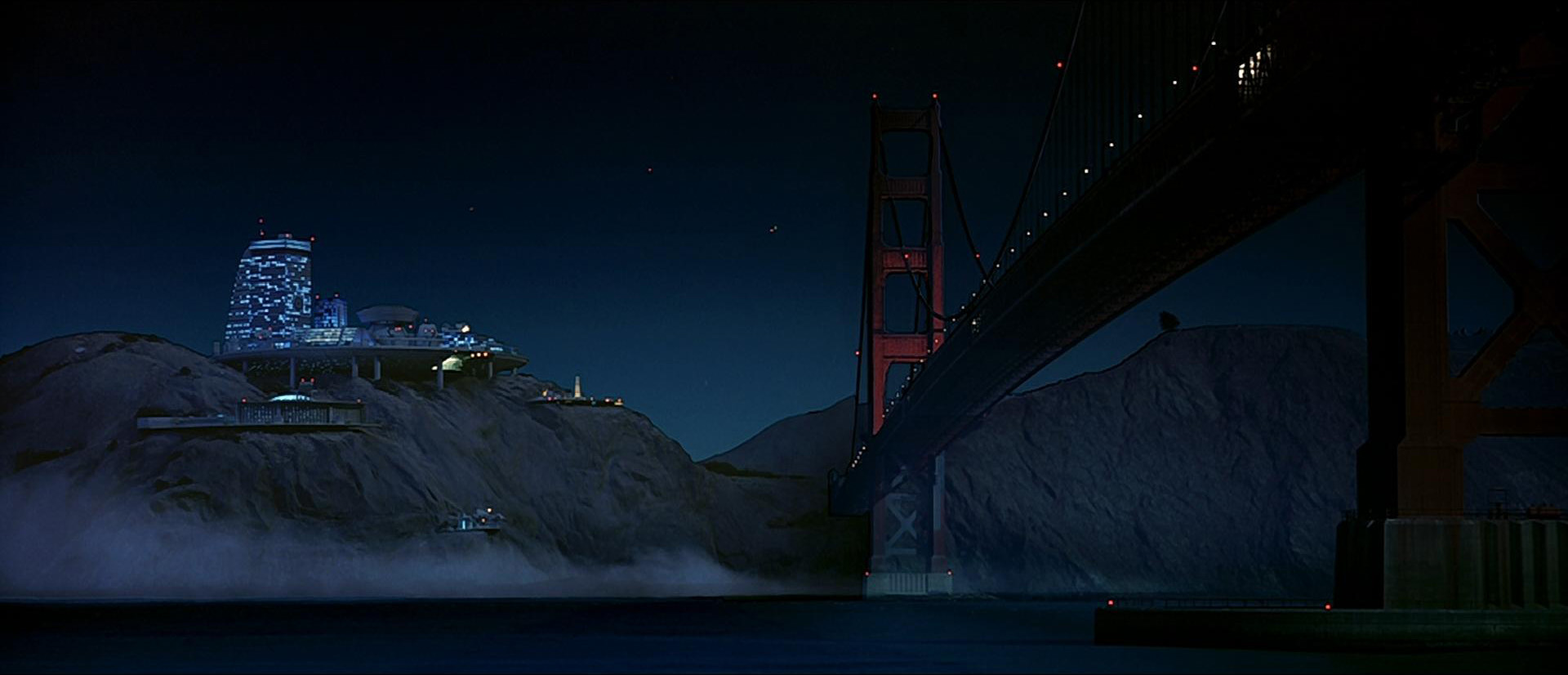
And most recently, in Picard, it's taken over Horseshoe Bay and pushed into the Bay itself?
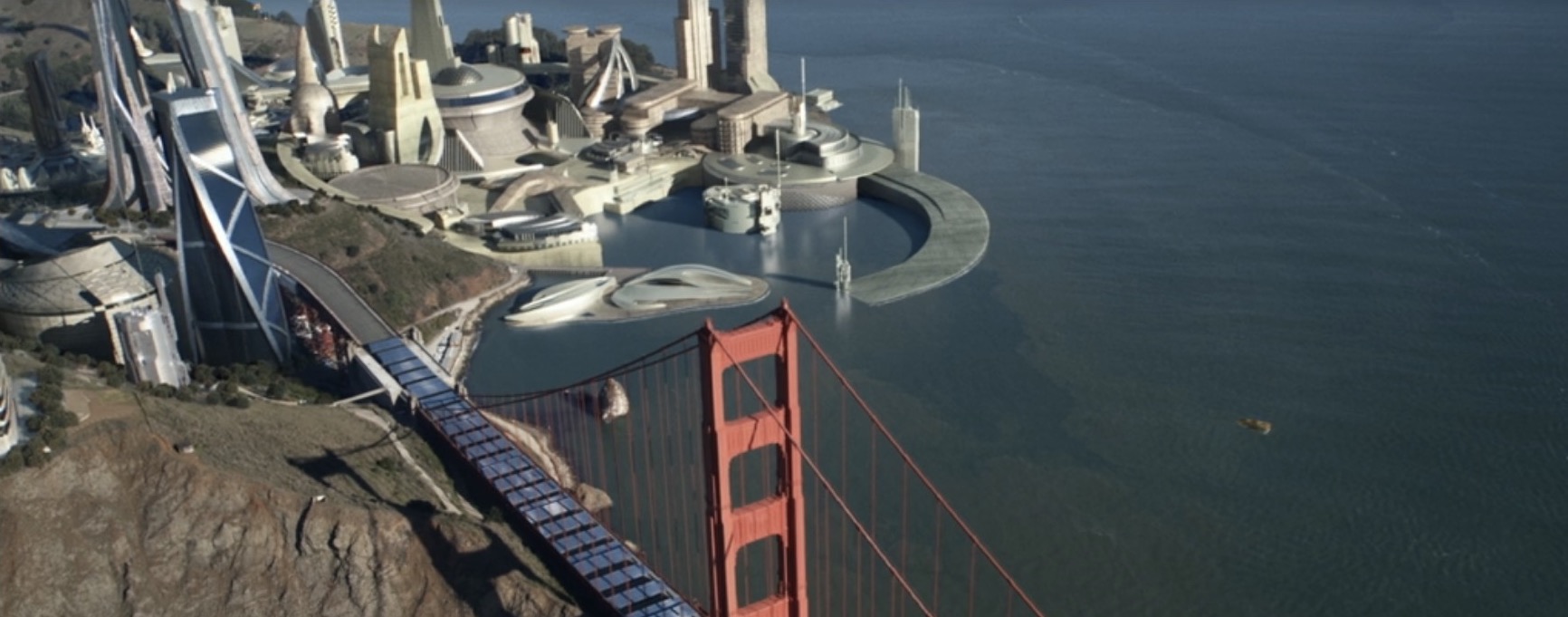
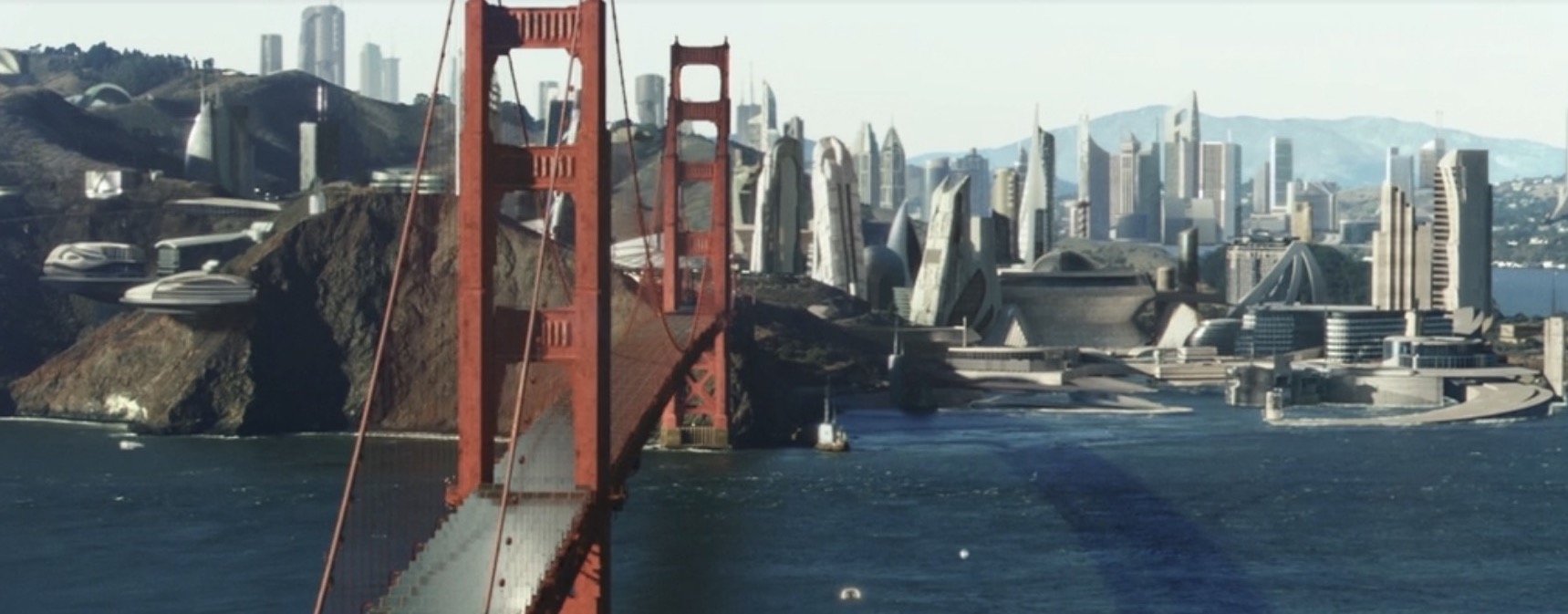
I know the story spans a couple centuries and the San Andreas has undoubtedly slipped more than once during that time, but c'mon…pick a site and stick with it.

I just finished binging the first season of Tell Me a Story on CBS All Access, and I have to say, it was one of the most satisfying bits of storytelling I've seen in quite some time.
When I initially read the premise of the show I didn't see how any of it would work, but somehow the writers pulled it off.
Highly recommended if you have CBS All Access.
Going to give it a short break and then jump into Season Two.
But next up, Star Trek: Discovery.
As I wrote a few weeks ago, we've cut the cord with cable and have gone to streaming services. At this point I don't know why it took me so long to agree to it.
Apple TV was the gateway drug. It's free for us at the moment, but what enticed me to check it out was one of their initial "signature" shows, For All Mankind. When I first heard of this, I thought it was going to be a docudrama of Apollo 11 and our trip to the moon. Being the space nerd that I am, this was enough to get me interested, but when I found it it was going to be an alternate reality show where Russia first planted a flag there, well..sign me up!
For All Mankind proved to be everything I'd hoped it would be, presenting an alternate reality where not only did we not abandon the moon, but we were on our way to Mars in the 1980s. I can't wait for Season 2.
Unfortunately, nothing else on Apple TV has piqued my interest.
We were already subscribers to Amazon Prime and Netflix, so it was only a matter of adding Hulu and Philo to get everything we'd been watching before, still at a net savings to what we were paying for cable.
Some of the other things I've binged in the last few weeks:
Lost in Space Season 2 (Netflix)
I desperately did not want to like this reboot, but I have to admit I enjoyed Season One last year. I grew up on Lost in Space; my parents' preferred discipline being to deny me access to the show the particular week I misbehaved. That's how much I was into it and why I was expecting so much from the reboot. At first I was put off by the story and ahem—gender—changes in this new version, but came to embrace them as the story developed. Dr. Smith is no longer a bumbling buffoon; she is now an outright psychopath and her expert manipulation of the people around her is frightening. Also, the robot—and in fact the fleet's propulsion and guidance systems—in this reboot were not made, but rather found. This change has produced the backbone and the ultimate arc of the story.
To be honest, Lost in Space plods in places (I found myself fast forwarding through most of the first three episodes of Season 2), and a lot of times you're left shaking your head with "WUT?!" but overall I enjoyed both seasons and I'm looking forward to the third.
Messiah (Netflix)
Not at all what I was expecting and not something I was initially drawn to, but I needed something other than Louis Rossmann (yes, I'm that big of a nerd) videos to watch at lunch. The story quickly drew me in, and while precious few questions were definitively answered by the end of the first season, it left me wanting more. Just when you think you have things figured out, the writers throw you a curve ball (especially during the last 15 minutes of the last episode after all evidence has pointed to the lead characters lack of divinity) that you're left questioning everything you've come to believe.
The Expanse Season 4 (Amazon Prime)
Thank the Flying Spaghetti Monster Amazon took up this production when the original series was canceled by SyFy. (It's rumored that Jeff Bezos was a huge fan and was instrumental in Amazon's acquisition of the property.)
I stumbled upon The Expanse on SyFy back in Season One and it drew me in. I'd never heard of the original source material, but from the beginning it was obvious that it was much more than another space opera. This was what I affectionately call "hard" science fiction, along the lines of 2001: A Space Odyssey, and Moon. I was genuinely saddened when I first read that SyFy wasn't renewing it after Season 3.
The Expanse presents a vision of humanity's future in space, colonizing the solar system and our first encounter with undeniably alien intelligence. And as you might expect, those colonization efforts do not produce one big happy human family. The geopolitical aspect of the show is as engaging—and as potentially realistic—as the rest of the story.
The Gift (Netflix)
This one was a surprise. A Turkish production (with English subtitles), The Gift tells the story of…well…even as it finished up I was at a loss to fully wrap my head around exactly what and why things had happened other than to say, "Be careful what you ask for. It just may happen." Centered around the possibly as old as twelve-thousand years Gobekli Tepe archaeological site in Turkey, The Gift explores both the practical and spiritual. It's part soap opera, part In Search Of (for those of you old enough to remember that series). The cinematography is gorgeous, and the male leads are hot, but as I said I'm at a loss to fully describe what I spent the last several days watching, but if you're willing to devote your time to it (being in Turkish you have to pay attention to read the subtitles) you won't come away disappointed. Confused, perhaps, but not disappointed.
Because you can never get enough of Justin Theroux in grey sweatpants.

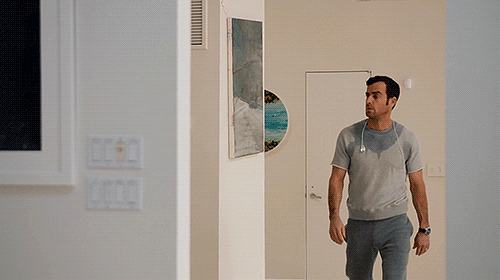
Filed under "religion," because I'm sure we're all ready to get down our knees and worship.
The trouble with having a rather prominent Doctor Who tattoo is that strangers you encounter expect you to have an encyclopedic knowledge of every episode for the last 50 years. Hell, I don't even have an encyclopedic knowledge of the last 5 episodes!
…Ben and I are not the only ones who—despite the blatant racism, misogyny, and homophobia present in Supernatural (at least the early seasons; we still haven't gotten that far into it), there is a not so subtle homoeroticism as well.
I suppose that unsurprisingly goes along with the frat mentality of their target audience. "It's not gay if our dicks don't touch!"
Out of curiosity, the other night I googled Supernatural slash, and imagine my surprise. There's even a term for it: Wincest.
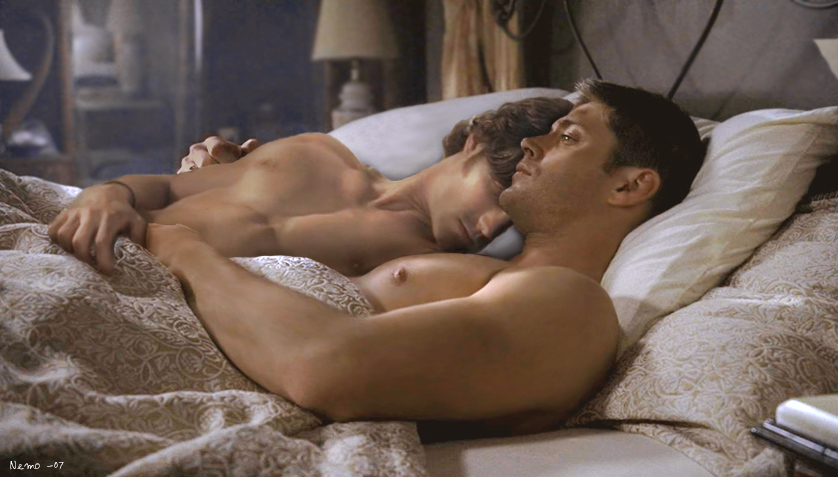

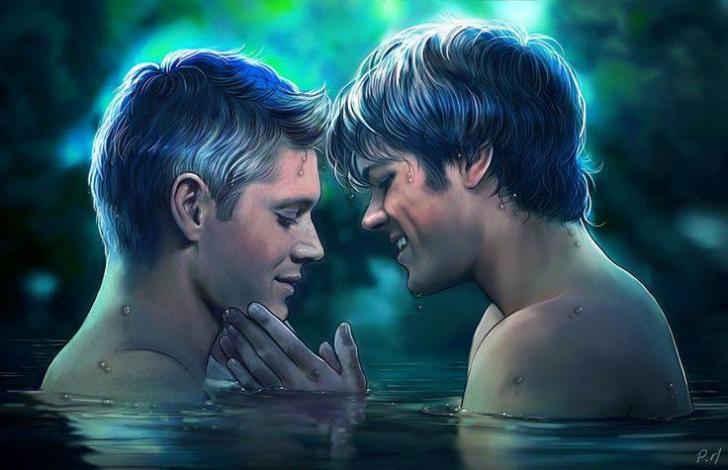
As George Takei would say… "Oh my!"
Now if they'd only get past their daddy issues and fuck for Chrissake!
We did it. For months Ben has been advocating telling Cox to take a hike. It wasn't that the service was unreliable or the choices in programming unacceptable; it was just too damned expensive. Even with our Premium package, we were paying over $200 a month for cable and internet service. I was reluctant to leave cable because—let's face it—I'm an old fart and not as welcoming of change as I once was. Also, when we checked into this a few months ago, several of the channels we (okay, I) watched were on channels that the various streaming services did not provide at the time. Service A provided w, x, and y, but not z. Service B provided z, but not w or y. Service C provided x, y, and z, but not w. You get the idea. By the time you added up all the services we'd have to subscribe to, the difference in cost over what we were paying for cable was negligible.
All that changed two days ago. We got an Apple TV. I know, I know…one more cog in the ecosystem for me to eventually rant about. But lo and behold, the device was surprisingly useful beyond just providing a big screen experience of For All Mankind. It serves as a hub for our smart switches and outlets, as well as allowing me to cast my music library to the living room stereo as well as display my Mac's laptop screen on the television when I want to. (Admittedly done rarely, but when needed it was a hassle to hook up.)
We're now subscribers to Hulu and Philo. Those, coupled with Netflix, Amazon Prime, and YouTube (which we were already subscribing to) provide everything we were getting through Cox—at slightly more than half the cost. Even when we add HBO and Showtime back in the mix (when the series we were watching there return next year) we're still coming out way ahead.
So, as usual, I'm late to the party, but glad I finally arrived.
(The only thing I'm struggling with is the stupid Apple remote. Maybe it's just a learning curve, I find none of that Apple intuitiveness about it, and I've wanted to hurl it across the room on several occasions.)
Shohreh Aghdashloo from The Expanse
All of the "boutique" shows I've been watching have wrapped up for the season (or the entire series).
Mr. Robot (series)
To be honest, I was kind of disappointed with the series finale. I'm still processing it to some degree, but it left me asking questions that will probably never be answered. Did any of the incidents portrayed during the past for years actually occur in real life, or were they just part of Elliot's psychotic break?
His Dark Materials (season)
Loved it. Unlike The Golden Compass movie from years ago, this time the story stayed almost perfectly true to the source material. They aren't shying away from the religious and spiritual underpinnings of the novels and I appreciate how Will's story (that doesn't actually appear until Book 2, The Subtle Knife) has been interwoven with the events of The Golden Compass. Excellent storytelling.
If I have a gripe, it's that the battle scenes seem a bit…sanitized for our protection and there is a distinct lack of daemons on screen. (Kind of ironic considering the creative force behind this production keeps telling us this first season is all about the daemons.)
For All Mankind (season)
This one kind of took me by surprise and was the sole reason I started exploring Apple TV. This has been a thought-provoking alternate-timeline history of the American space program. Spurred into action by Russia landing the first man (and woman!) on the Moon, the space program is jump-started and after landing astronauts—of both sexes—on the Moon, have established a base, and looks to be on the way to Mars by 1985! Of course there's a lot of family and personal drama taking place as well, which adds the certain emotional spice needed for an otherwise "dry" drama.
Definitely looking forward to Season Two next year.
The Expanse (season)
Brought back from the dead by Amazon Prime after being cancelled by SyFy after a three year run, the Expanse continues to be one of my favorite "hard" sci-fi dramas on television. It's definitely not one of those shows you watch as background noise; it demands your full attention to follow what's happening. I just got done binging the entire fourth season and it's only left me wanting MORE.
Watchmen (season? series? No one seems to know for sure.)
This is another show that can't be on as background filler while you're cruising the interwebs. I was perhaps at a disadvantage because except for the 2009 movie, I was unfamiliar with the source material and required a lot of dedicated paying-attention to the story to suss out what was happening. Even then I had to resort to podcasts to get a fuller understanding and appreciation of what the writers and producers were throwing us. It's a beautiful stand-alone story, and while HBO hasn't announced a second season, the story—while self-contained and satifying on its own—definitely left things open-ended enough that it could easily continue.
Guess I'm going to have to search out weird shit on Netflix or Amazon Prime now.
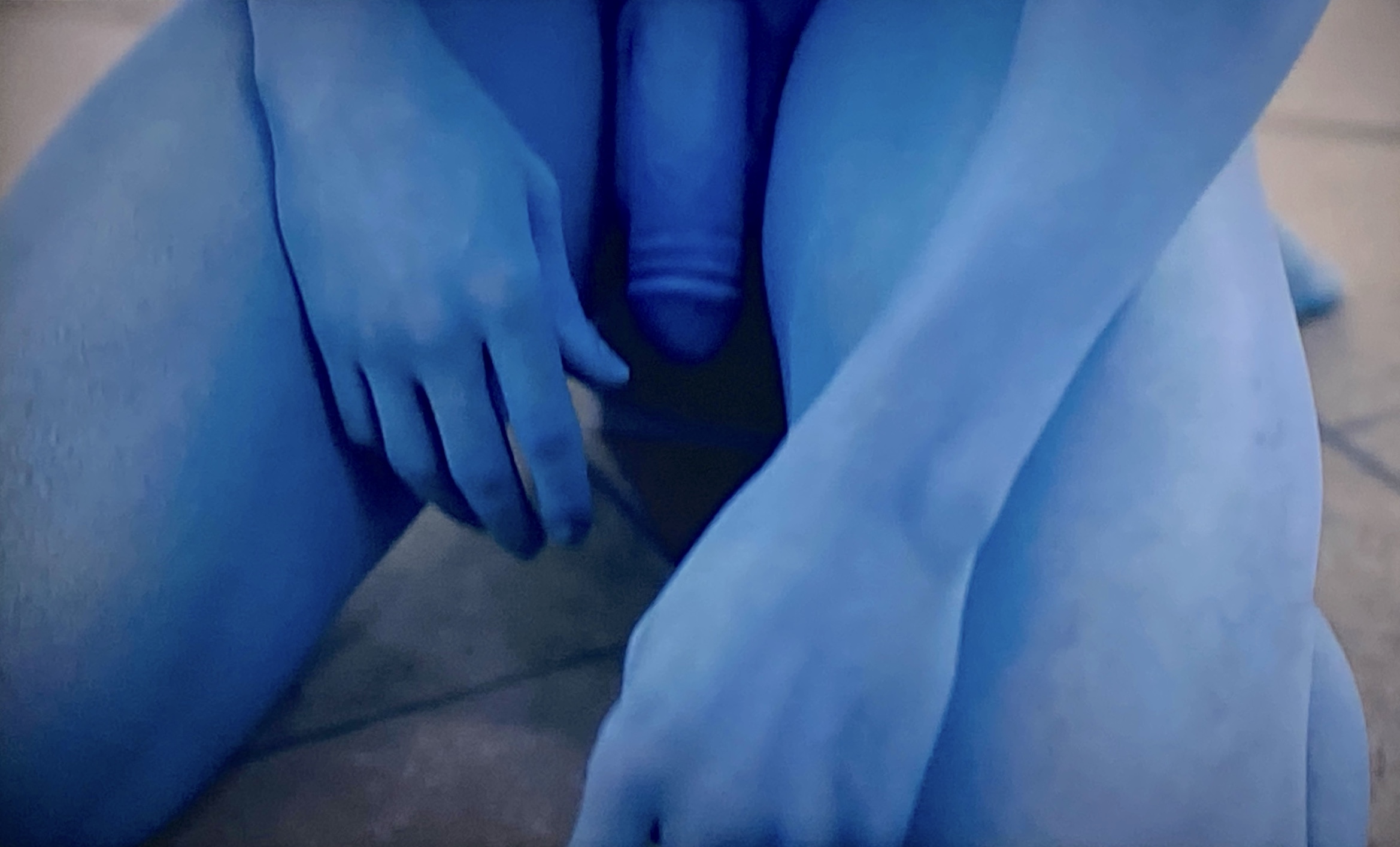
…without a big blue penis!
Gratuitous James Wolk, from Watchmen
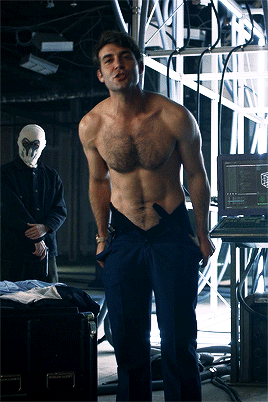
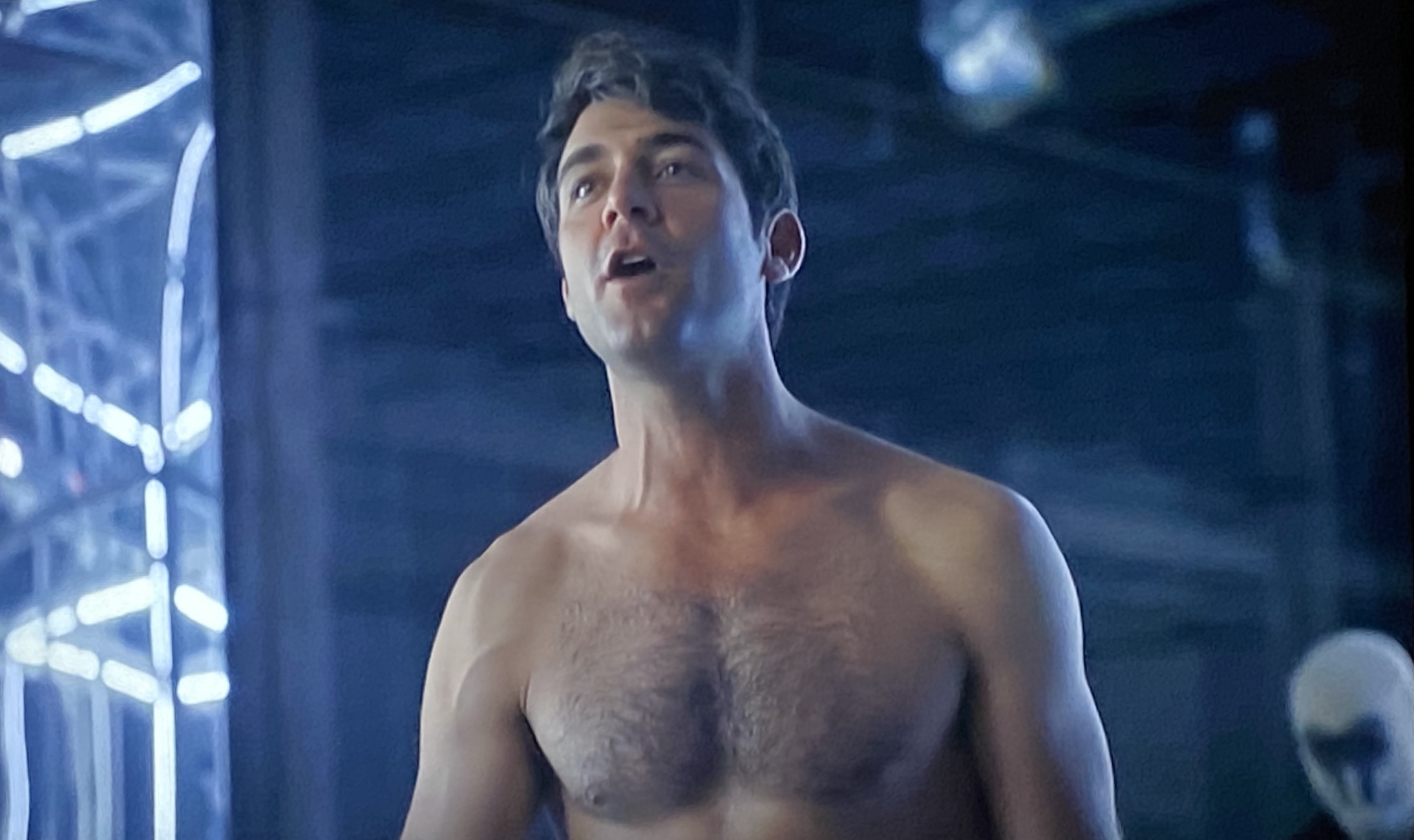
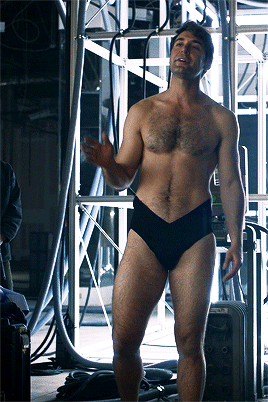
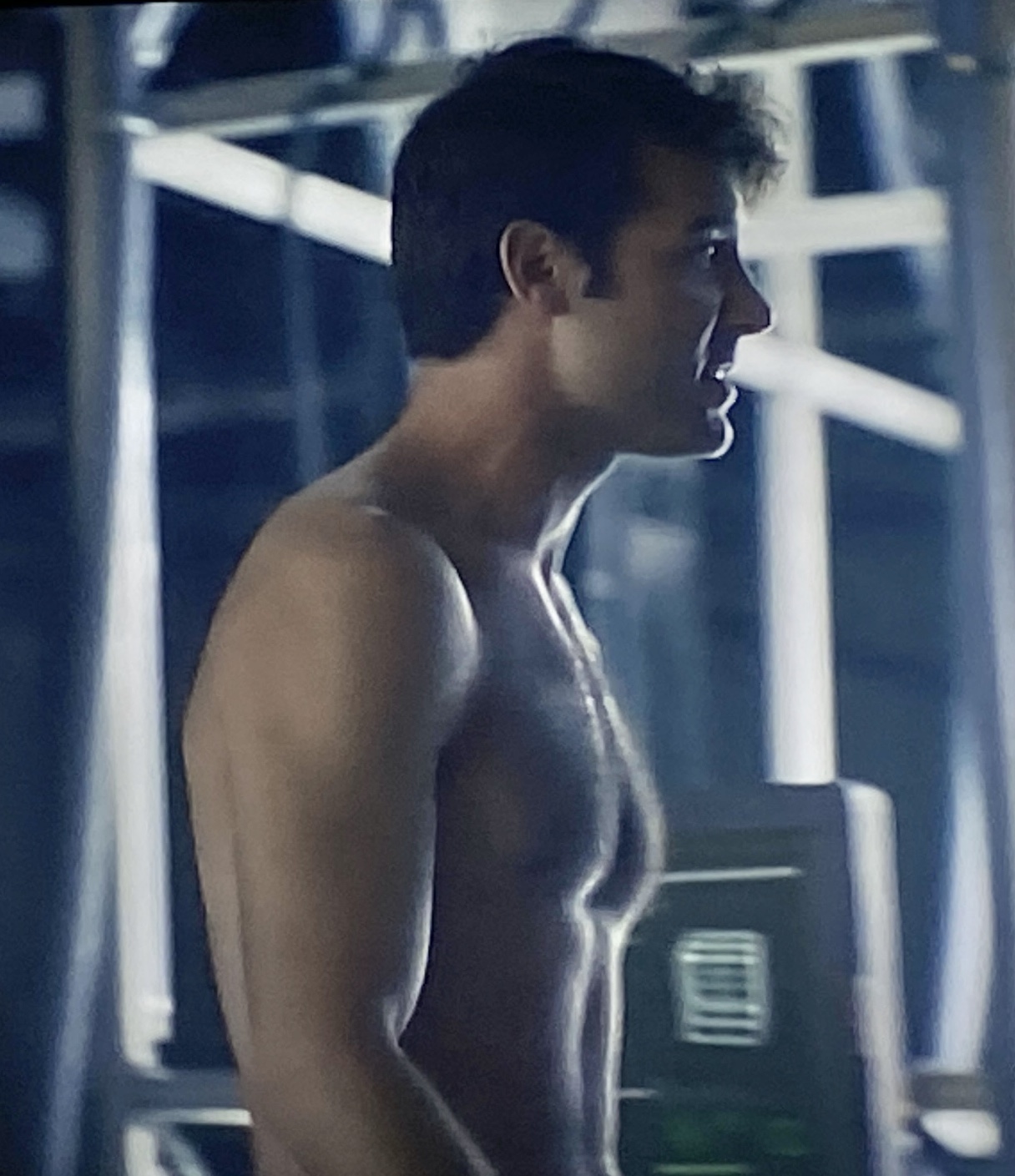

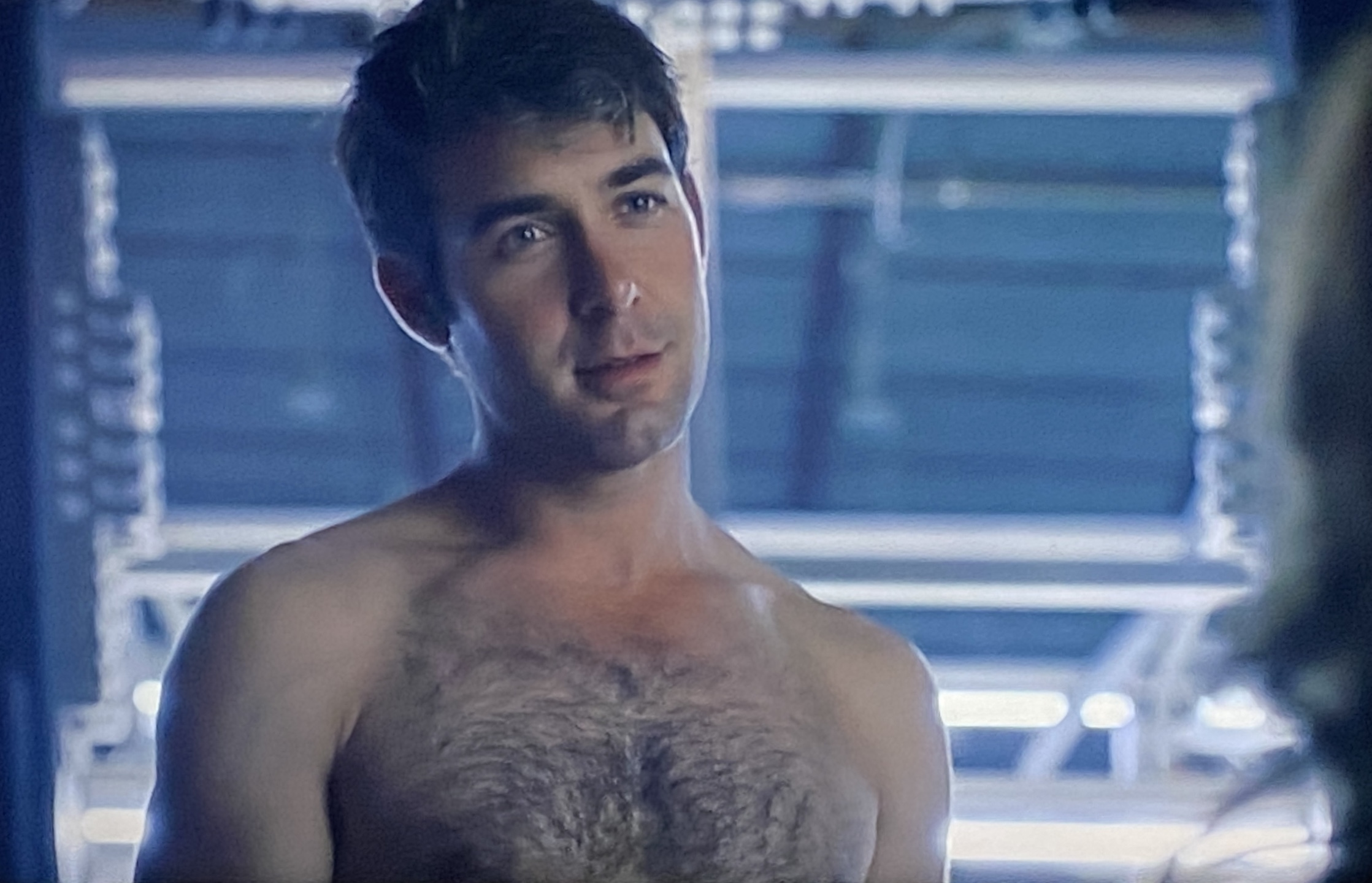
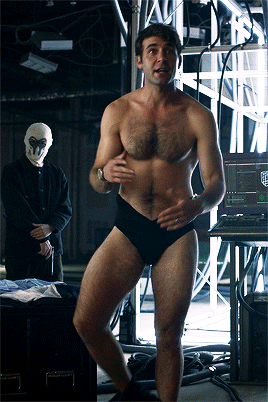
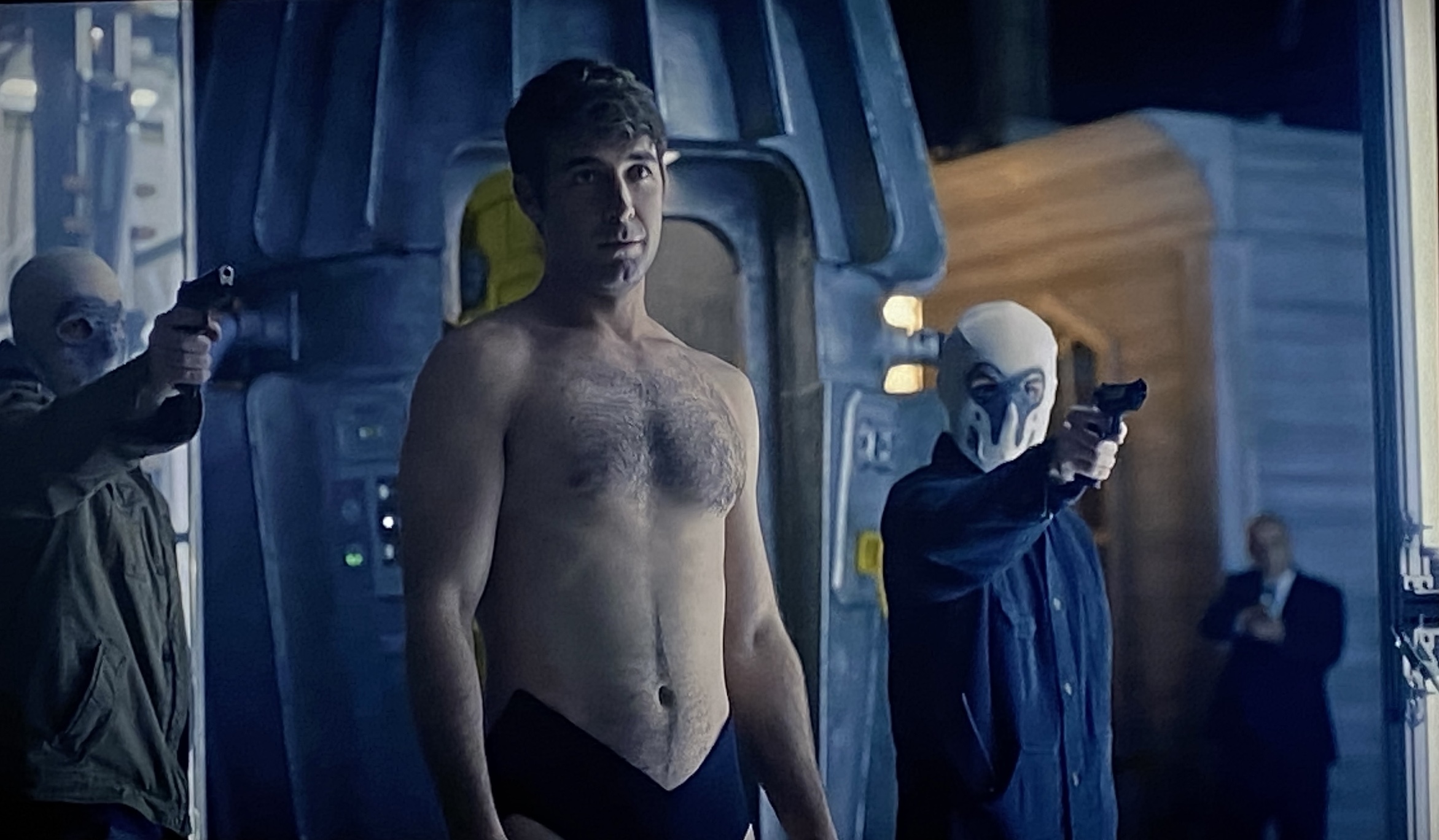
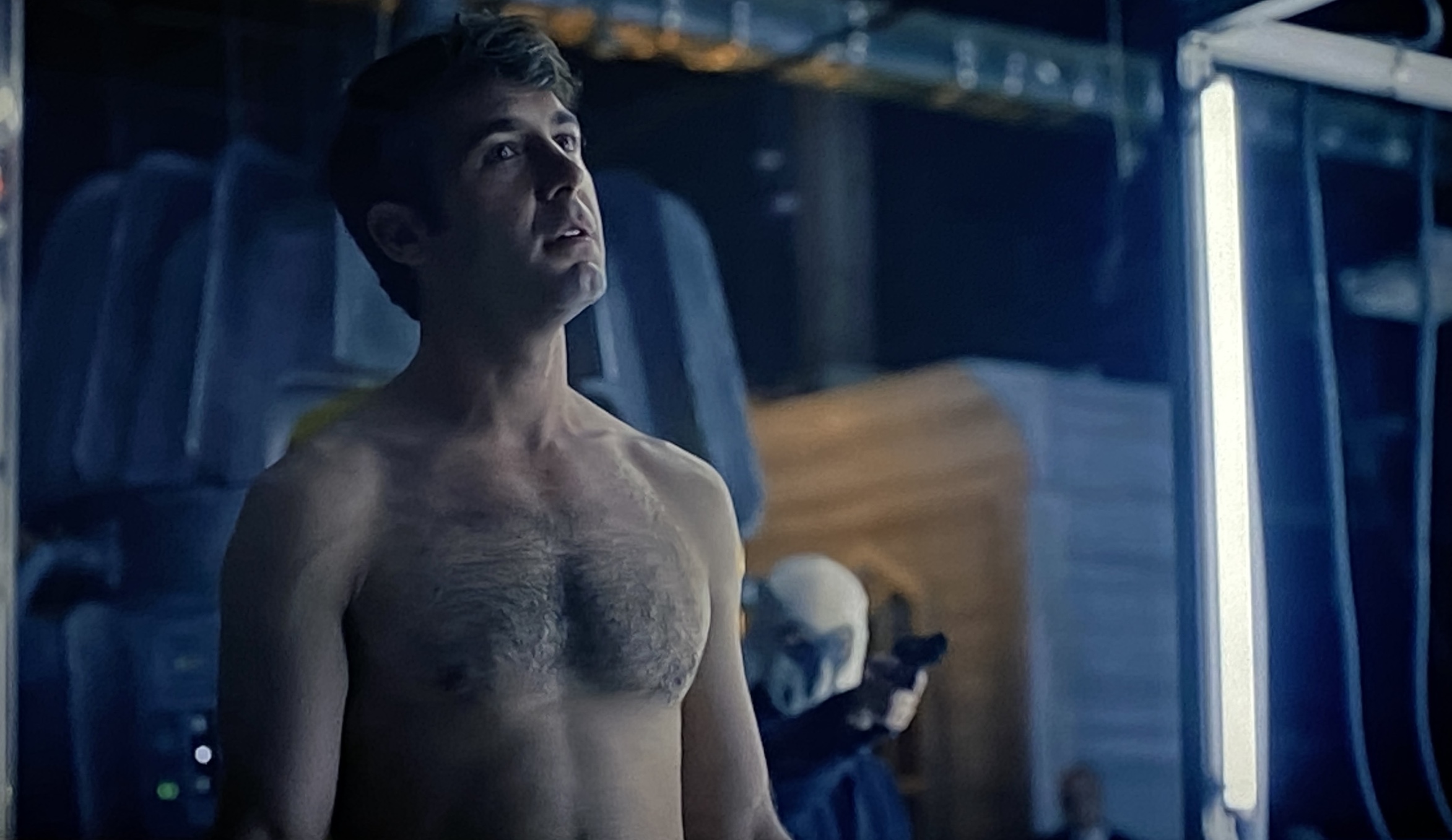
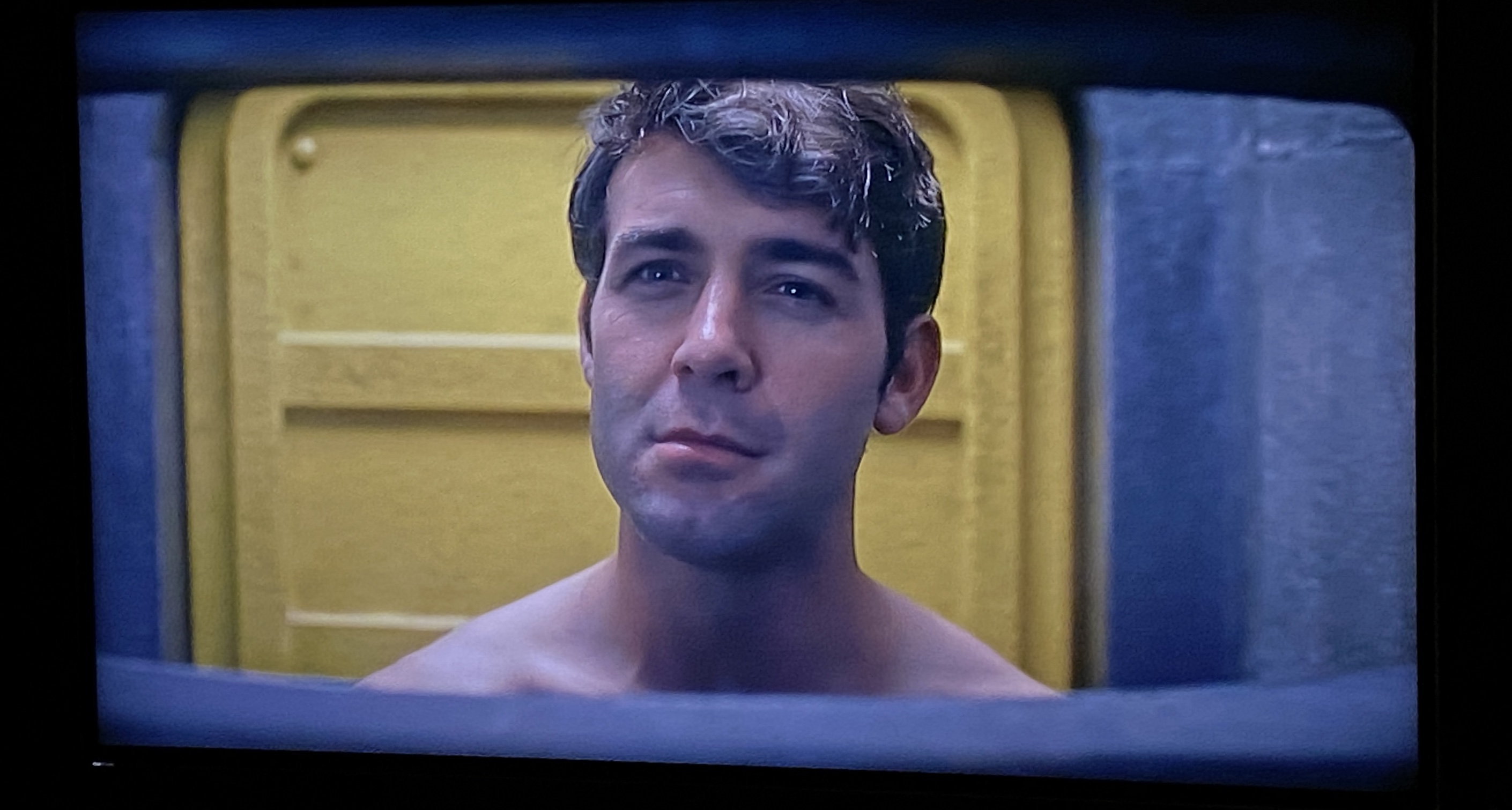
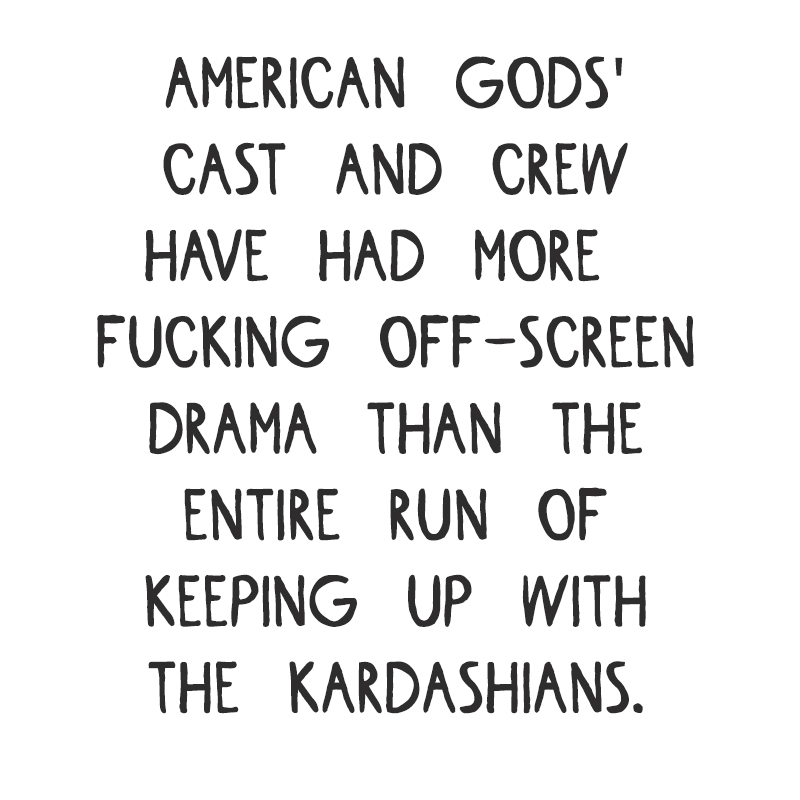 Apparently Orlando Jones will not be returning for Season 3.
Apparently Orlando Jones will not be returning for Season 3.